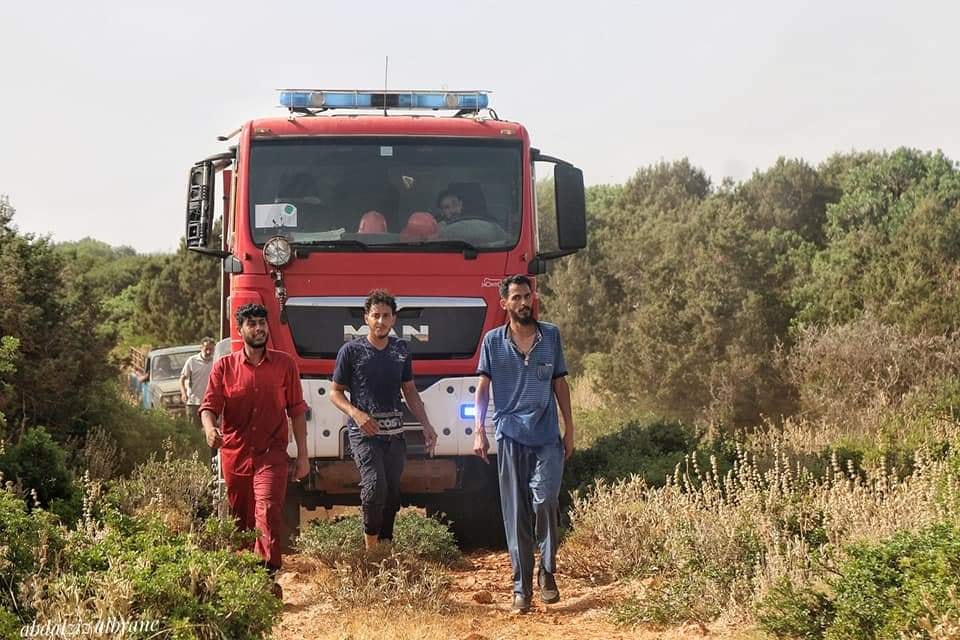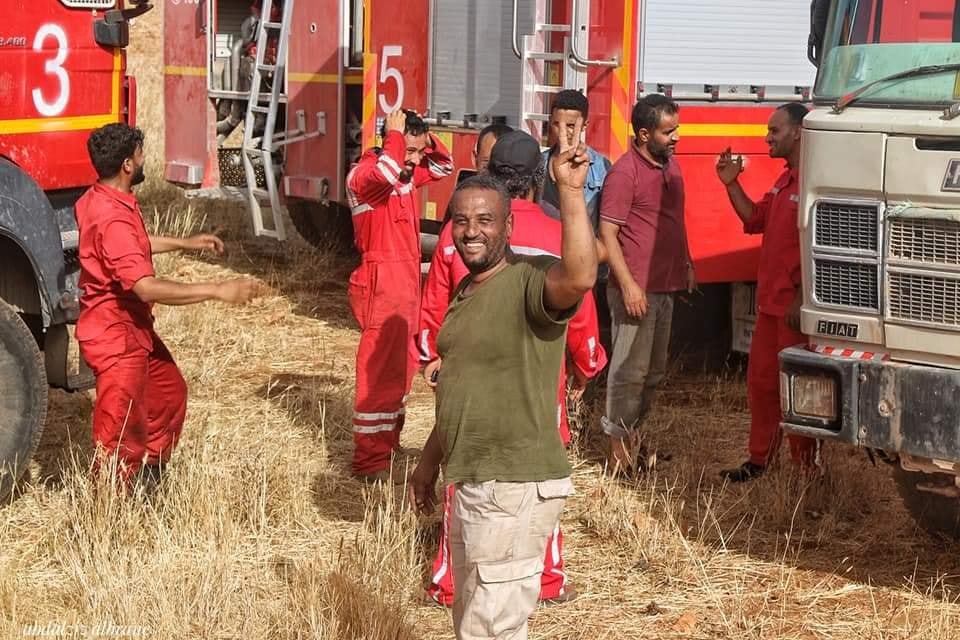Meet the guardians of Libya’s Green Mountain
By Climate Champions | August 1, 2024
In the war-torn North African state of Libya, local Civil Society Organizations (CSOs) have been fighting a very different and difficult war: safeguarding the country’s greenest region from desertification and human-induced land degradation.
Al-Jabal al-Akhdar, or the Green Mountain, is a mountainous plateau running in northeastern Libya for about 350 kilometres (220 miles) on the Mediterranean coast and surrounded by the dry desert of Libya. The region, estimated to cover 2.3 million acres, hosts 70% of Libya’s flora and is known for its lush forests and diverse wildlife. The natural vegetation of the Al-Jabal Al-Akhdar has a significant impact in the region in terms of providing suitable habitat for wildlife and providing nutrients for the soil.
Since the fall of Muammar Gaddafi’s regime in 2011, the state’s regulatory bodies and environmental protection have weakened. Since then, human-induced land degradation has worsened due to the emerging socio-economic demands from clear cutting of trees for charcoal or housing to heavy grazing from cattle production – the main economic activity representing 45% of the region’s population. All these activities have led to catastrophic impacts, including soil erosion and loss of vegetation cover leading to resulting in rapid and alarming degradation.

New Libya Association for Environment and Natural Resources in action. Image: New Libya Association for Environment and Natural Resources.
New Libya Association for Environment and Natural Resources, located in the district of Al-Jabal Al-Akhdar, has been leading reforestation efforts in a bid to safeguard this important forest cover in Libya. The Association is one of many Non-State Actors to endorse the UN Climate Change High-Level Champions’ Food Systems Call to Action.
“We have been working closely with the local community to reduce the violations and encroaching on this important area, which is a green lung not only for Libya, but for the African continent and the Mediterranean region. We need to save the forest, animals and the entire ecosystem but we cannot do it alone,” said Younes Ahweej, the executive director of New Libya Association.
When it was first founded in 2013, the New Libya Association led reforestation efforts, funded by IUCN, to restore a 301-hectare forest ecosystem from the wildfires that took place in 2013 and 2014 and affected 25% of the plant species in this area. In 2019, another wildfire erupted in the forests. These repetitive wildfires cause irreplaceable loss to the forest cover in Libya.
The local community members joined forces in planting seedlings which are sometimes donated by local businesses or the community. In many instances, they also rush to help extinguish the fires with local firefighters. In addition, the Association has been leading environmental education and teaching students the importance of Al-Jabal Al-Akhdar and involve them in planting and preserving seedlings.

New Libya Association for Environment and Natural Resources in action. Image: New Libya Association for Environment and Natural Resources.
Local CSOs operating in Al-Jabal Al-Akhdar do not have enough resources to continue the supply of suitable forest trees seedlings, in addition to early warning systems, Geographic Information Systems (GIS) and Remote Sensing (RS) techniques. Local authorities, at the same time, need to upgrade their firefighting capabilities in addition to planes and proper equipment to intervene inside the mountainous forests or the elevated plateaus of Al-Jabal Al-Akhdar.
In September 2023, Storm Daniel stroked Al-Jabal Al-Akhdar district with strong winds and heavy rainstorms (70-80 km/h), causing flash floods in several cities and valleys. The area was strongly affected by the storm and because of deforestation and the heavy soil erosion, valley channels and banks were washed away by water runoff leading to the huge destruction and loss of lives in the city of Derna.
In this climate-conflict nexus, the important role played by Non-State Actors and Subnational Authorities is evident, highlighting the urgent need for concerted support by the international community to back grassroots efforts though establishing sustainable land management practices and the socio-economic development of local communities.
About the Food Systems Call to Action
The UN Climate Change High-Level Champions (HLCs) have collaborated with Non-State Actors – from farmers and fishers to businesses, cities, civil society, consumers and all those engaged in food systems – to develop a Non-State Actors Call to Action for Transforming Food Systems for People, Nature, and Climate.
The Call to Action mobilizes collective efforts around a shared vision of food systems that deliver significant, measurable progress for people, nature, and climate by 2030. Through this shared agenda, we aim to scale action, raise ambition, and unlock the potential of food systems as one of the main solutions for people, nature, and climate.



